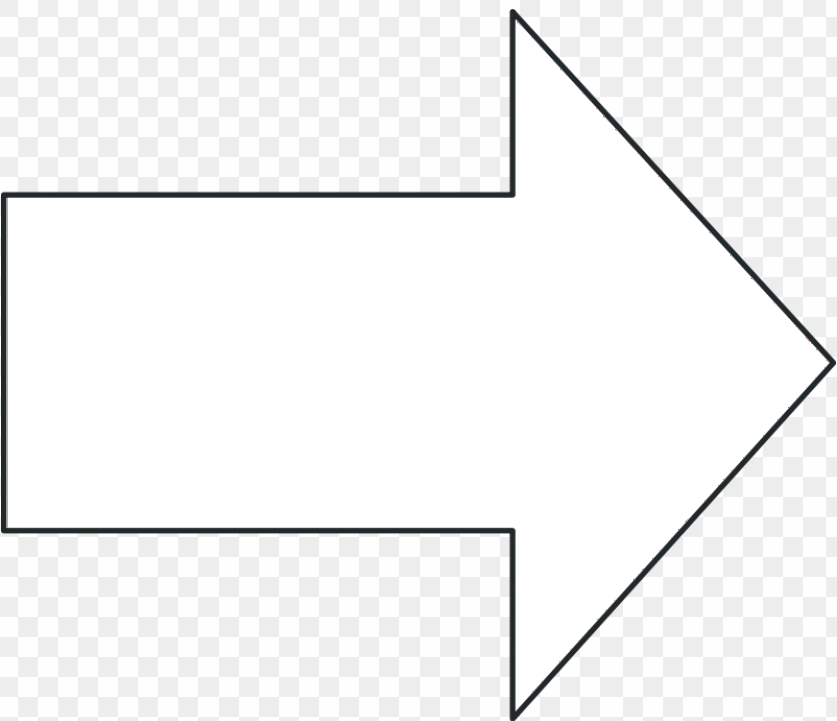Herbal remedies and dietary supplements have been used to treat hypertension and some have been shown to be moderately effective in small trials.1–4 But they are not regulated with the same standards of effectiveness and safety as pharmacological treatments and, as such, should be used with caution.
While prescription and over-the-counter medication manufacturers must provide high-quality evidence to the Food and Drug Administration (FDA) that their products are safe and effective before they can be sold, the FDA does not review herbal remedies or dietary supplements for safety and effectiveness before they are marketed.1,2 For this reason, high-quality randomized controlled trials often do not exist for dietary supplements. In addition, although the FDA does provide guidance for good marketing practice to help ensure their identity, purity, strength, and composition, some supplements have been found to contain hidden prescription drugs or other compounds because the FDA has no regulatory oversight for the manufacturing process. There is no guarantee that the actual contents of any given bottle of herbs or supplements contains what it claims to contain. In addition, some supplements are known to interfere with the pharmacokinetics of other medication.
When evaluating the use of complementary and alternative antihypertensive treatment, it is important to consider the quality and generalizability of the evidence supporting their efficacy, the lack of quality control in their production, limited information about side effects, their potential for harm, and the possible interactions between the alternative treatment and other medicines being taken.
It is not surprising that plant-based remedies might have therapeutic applications since many medicines on the market today had plants as a starting point in their development and plant-based treatments have been used throughout the history of medicine.5 Herbs and supplements that are antioxidants may interrupt vascular cell damage. Others have anti-inflammatory, diuretic, or vasorelaxant properties.1,5,6
No herbs and supplements that claim to be effective in lowering blood pressure have actually been shown to be potentially effective as a treatment for hypertension in large high quality human clinical trials.3,4 These include coenzyme Q10, fish oil, vitamin C, and garlic. A summary of the evidence for their efficacy and safety is given below.
Coenzyme Q10
Coenzyme Q10 is present in all human cells, with the highest concentrations in the heart, liver, kidney, and pancreas.1 It acts as a potent antioxidant, a membrane stabilizer, and is a co-factor in the generation of adenosine triphosphate, a major cellular energy source.7 Several small studies have demonstrated that supplementation with coenzyme Q10 lowers blood pressure in hypertensive patients.8,9 Some researchers believe that supplementation with coenzyme Q10 might reduce the need for treatment with multiple antihypertensive medications.10
Singh et al. conducted a randomized controlled trial with 64 patients who had been on antihypertensive treatment for at least one year.8 Half received coenzyme Q10 60 mg for eight weeks while the other half received a vitamin B-complex. In the coenzyme Q10 group, mean systolic BP levels dropped from 168 ± 9.6 mm Hg at baseline to 152 ± 8.2 mm Hg after eight weeks. Diastolic BP levels dropped from 106 ± 4.6 mm Hg to 97 ± 4.1 mm Hg. In the vitamin-B group, mean systolic BP levels dropped from 166 ± 8.5 mm Hg at baseline to 164 ± 8.2 mm Hg after eight weeks. Diastolic BP levels dropped from 105 ± 4.8 mm Hg to 103 ± 4.6 mm Hg. At the conclusion of the study, those taking coenzyme Q10 had significantly lower systolic and diastolic blood pressure than those on vitamin B (p<0.05).
Burke et al. studied 41 men and 35 women with isolated systolic hypertension (150 to 170 mm Hg).9 Half received 60 mg of coenzyme Q10 with vitamin E and half received just vitamin E for 12 weeks. At the conclusion of the study, those taking coenzyme Q10 had a mean drop in systolic blood pressure of 17.8 mm Hg (± 7.3 mm Hg), a statistically significant drop relative to baseline (p<0.01) and compared to those taking vitamin E (p<0.01).
Langsjoen et al. studied the effect of adding coenzyme Q10 to a pre-existing antihypertensive regimen in a prospective observational study of 109 patients in a private cardiology practice.10 The dosage of the coenzyme Q10 varied during the course of the study to achieve measured levels higher than 2.0 mcg/mL. The average daily dose was 225 mg per day. After a minimum follow-up period of one year, the average drop in blood pressure was 12/9 mm Hg (p<0.01). Just over half of the participants were able to discontinue at least one of their antihypertensive medications.
No large randomized controlled study has been conducted to assess the impact of coenzyme Q10 as an antihypertensive therapy or on specific clinical effects such as the incidence of stroke or heart attack.7 Due to a lack of large high-quality trials that measure BP-lowering effects and cardiovascular outcomes, the NIH Center for Complementary and Integrative Health considers the evidence for the blood pressure-lowering effect of coenzyme Q10 insufficient to recommend it for this purpose.1 They also point out that it may interact with blood thinners, insulin, and some cancer treatments. Side effects that have been reported include abdominal discomfort, nausea, vomiting, diarrhea, and anorexia, allergic rash and headache.7
Fish Oil
Fish oil is present in the tissues of cold-water fish like herring and salmon and is marketed commercially in capsules as a supplement. It contains long-chain omega-3 polyunsaturated fatty acids that have demonstrated some heart-healthy effects including the lowering of serum triglycerides.1,11 There is some evidence that omega-3 fatty acids may also have antiarrhythmic, antithrombotic, and antihypertensive effects.4 Healthy young people that have higher omega-3 levels in their blood have lower blood pressure generally.12 However, in the Physicians Health Study of 21,185 male physicians, dietary intake of fish was not associated with reduced cardiovascular mortality.13
Miller et al. conducted a meta-analysis of 70 randomized controlled trials (n=4,409) studying the effect of eicosapentaenoic acid and docosahexaenoic acid (EPA+DHA), the omega-3 fatty acids present in fish oil, on blood pressure.14 The meta-analysis included trials (of three weeks duration or longer) of adults not currently taking antihypertensive medications when the dosage of EPA+DHA was available and blood pressure readings were reported as outcome measures. Both food sources of fish oil and supplements were included in the analysis. The mean dosage of fish oil was 3.8 g per day. Compared with placebo, EPA+DHA reduced systolic blood pressure by an average of 1.52 mm Hg (95% confidence interval [CI] [2.25 – 0.79]). Among hypertensive subjects, the blood pressure was lowered by an average of 4.51/3.05 mm Hg (95% CI [6.12 – 2.83/ 4.35 – 1.74]). This blood-pressure-lowering effect is comparable to the effect of some lifestyle changes including restriction of salt and alcohol.15 However, unlike studies examining the effect of salt and alcohol on blood pressure, this meta-analysis included small and heterogeneous studies of generally short duration, which limits the certainty of its findings.
Campbell et al. conducted a systematic review of 17 randomized controlled studies and crossover trials of adults taking fish oil supplements for at least eight weeks (total n=1,524).16 In the eight studies of hypertensive patients (blood pressure 140/85 mm Hg or higher) taking fish oil supplements, blood pressure dropped by a mean of 2.56/1.47 mm Hg (95% CI [0.58 – 4.53/0.41 – 2.53]). Blood pressure also dropped in the nine studies of normotensive people taking fish oil supplements, but the drop was not statistically significant.
There have been no large randomized controlled studies that demonstrate the effectiveness of fish oil in improving important patient outcomes such as heart attacks or stroke or preventing cardiovascular disease in patients with normal blood pressure. Fish oil supplements are generally well-tolerated, with mild side effects such as eructation and dyspepsia reported infrequently. In large doses, fish oil can potentially cause bleeding.11
Vitamin C
Vitamin C (ascorbic acid) is an antioxidant that can protect cells from oxidative damage that is known to be a major cause of cardiovascular disease.1 However, it is not known if vitamin C specifically is cardio-protective or if it is helpful for people who already have heart disease. The US Preventive Services Task Force found insufficient evidence that vitamin C supplementation prevents cardiovascular disease.17
Duffy et al. demonstrated that taking 500 mg of vitamin C daily lowered systolic blood pressure (from a mean of 155 ± 22 mg Hg at baseline to 142 ± 16 mm Hg at one month) among 42 hypertensive patients already taking antihypertensive medication.18 Placebo had no effect on mean systolic blood pressure at one month.
Sato et al. administered 200 mg of ascorbic acid three times a day for six months to 24 patients with refractory hypertension.19 Twelve patients over 65 who took the ascorbic acid had a mean reduction in ambulatory systolic blood pressure of 20 mm Hg (p<0.001). The statistically significant effect was not seen in younger patients.
Although these small studies showed promising effects, Juraschek et al. conducted a systematic review and meta-analysis of clinical trials that examined the effect of vitamin C supplements on blood pressure and saw a more modest effect than the smaller studies.20 In the 29 trials that met eligibility criteria, the median dose was 500 mg a day, the median duration was eight weeks. Among patients taking vitamin C, the blood pressure was reduced by an average of 3.84/1.48 mm Hg (systolic 95% CI [2.38 – 5.29], p<0.01; diastolic 95% CI [0.12 – 2.86], p=0.04).
Although there is limited harm to taking vitamin C in moderation, taking too much vitamin C can cause diarrhea, nausea, and other gastrointestinal symptoms. The upper limit for vitamin C in adults is 2000 mg per day.1
Garlic
Garlic is a plant bulb that has been used to treat high cholesterol and high blood pressure, among other things.1 It is also sold as a capsule or tablet for medicinal purposes. Garlic has antioxidant and vasodilating properties which may explain its effect on blood pressure.4 A number of small studies have been done to evaluate its effectiveness.3 Several reviews and meta-analyses suggest that garlic may be more effective than placebo in lowering blood pressure, but studies were small21 or limited by significant variation in outcomes and methods.21,22
A meta-analysis by Rohner et al. included studies published through 2014 (n= 577).22 Systolic and diastolic blood pressures were reduced more after treatment with garlic compared to placebo, but the heterogeneity among the nine studies was high. Mean systolic blood pressure was reduced 9.1 mm Hg (95% CI [5.4 – 12.7]) and mean diastolic blood pressure was reduced 3.8 mm Hg (95% CI [1 – 6.7]). When only higher quality studies were analyzed, the effect of garlic on lowering blood pressure was less pronounced although still statistically significant compared to placebo. The authors conclude that while encouraging, the evidence is not strong, and further well-controlled studies are needed to evaluate the effectiveness of garlic on blood pressure.
Garlic has a few known harmful effects including allergic reactions, upset stomach, heartburn, and a possible increased risk of bleeding.1 It also can interfere with other medications including anticoagulants and medications used to treat HIV.
References
- National Institutes of Health: National Center for Complementary and Integrative Health. https://nccih.nih.gov/. Accessed January 2, 2019.
- US Food and Drug Administration: Dietary supplements. https://www.fda.gov/food/dietarysupplements/. Accessed January 2, 2019.
- Rasmussen CB, Glisson JK, Minor DS. Dietary supplements and hypertension: potential benefits and precautions. J Clin Hypertens 2012; 14 (7): 467-471.
- Chrysant SG, Chrysant GS. Herbs used for the treatment of hypertension and their mechanism of action. Curr Hypertens Rep 2017; 19 (9).
- Al Disi SS, Anwar MA, Eid AH. Anti-hypertensive herbs and their mechanisms of action: part I. Front Pharmacol 2016; 6 (323).
- Anwar MA, Al Disi SS, Eid AH. Anti-hypertensive herbs and their mechanisms of action: part II. Front Pharmacol 2016; 7 (50).
- Wyman M, Leonard M, Morledge T. Coenzyme Q10: a therapy for hypertension and statin-induced myalgia? Clevel Clin J Med 2010; 77 (7): 435-442.
- Singh RB, Niaz MA, Rastogi SS, Shukla PK, Thakur AS. Effect of hydrosoluble coenzyme Q10 on blood pressures and insulin resistance in hypertensive patients with coronary artery disease. J Hum Hypertens 1999;13(3): 203-208.
- Burke BE, Neuenschwander R, Olson RD. Randomized, double-blind, placebo-controlled trial of coenzyme Q10 in isolated systolic hypertension. South Med J 2001; 94 (11): 1112-1117.
- Langsjoen P, Langsjoen P, Willis R, Folkers K. Treatment of essential hypertension with coenzyme Q10. Molec Asp Med 1994; 15.
- Fish oil supplements. JAMA Med Lett 2014; 312 (8): 2018.
- Filipovic M, Aeschbacher S, Reiner M, Al E. Whole blood omega-3 fatty acid concentrations are inversely associated with blood pressure in young, healthy adults. J Hypertens 2018; 36 (7): 1548-1554.
- Moms MC, Manson JE, Rosner B, Buring JE, Willett WC, Hennekens CH. Fish consumption and cardiovascular disease in the Physicians’ Health Study: a prospective study. Am J Epidem 1995; 142 (2): 166-175.
- Miller PE, Van Elswyk M, Alexander DD. Long-chain omega-3 fatty acids eicosapentaenoic acid and docosahexaenoic acid and blood pressure: a meta-analysis of randomized controlled trials. Am J Hypertens 2014; 27 (7): 885-896.
- Dickinson HO, Mason JM, Nicolson DJ, et al. Lifestyle interventions to reduce raised blood pressure: a systematic review of randomized controlled trials. J Hypertens 2006; 24 (2): 215-233.
- Campbell F, Dickinson HO, Critchley JA, Ford GA, Bradburn M. A systematic review of fish-oil supplements for the prevention and treatment of hypertension. Eur J Prev Cardiol 2013; 20 (1): 107-120.
- Fortmann S, Burda B, Senger C, Lin J, Whitlock E. Vitamin and mineral supplements in the primary prevention of cardiovascular disease and cancer: an updated systematic evidence review for the USPSTF. Ann Intern Med 2013; 159 (7): 824-838.
- Duffy SJ, Gokce N, Holbrook M, et al. Treatment of hypertension with ascorbic acid. Lancet 1999; 354 (9195): 2048-2049.
- Sato K, Dohi Y, Kojima M, et al. Effects of ascorbic acid on ambulatory blood pressure in elderly patients with refractory hypertension. Arzneimittelforschung 2006; 56 (7): 535-540.
- Juraschek SP, Guallar E, Appel LJ, Iii ERM. Effects of vitamin C supplementation on blood pressure: a meta-analysis of randomized controlled trials 1 – 3. Am J Clin Nutr 2012; 95: 1079-1088.
- Ried K, Frank OR, Stocks NP, Fakler P, Sullivan T. Effect of garlic on blood pressure : a systematic review and. BMC Cardiovasc Disord 2008; 12: 1-12.
- Rohner A, Ried K, Sobenin IA, Bucher HC, Nordmann AJ. A systematic review and metaanalysis on the effects of garlic preparations on blood pressure in individuals with hypertension. Am J Hypertens 2015; 28 (3): 414-423.


